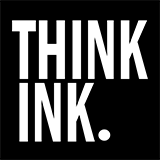Travel-Booking Turf War Heats Up as Hotels Grow Direct Reservations
Apr 15, 2016 / By Vanessa Horwell
After years of simmering tensions between hotels and online travel agencies, the battle for customer bookings has reached a boiling point. Given that sites like Priceline.com first emerged in the late 1990s – and that hotels pay commissions of 15-20 percent to third parties for each traveler booking – the only surprising thing about the 2016 “booking battle” is how long it has taken hotels to enter the fighting ring. Now, they’ve come out swinging. As the New York Times reported on March 27, the world’s largest hotel brands are deploying new marketing campaigns designed to drive more direct bookings. The Marriott and Hilton chains, specifically, have recently debuted commercials and other consumer-focused advertising and marketing tactics to educate consumers on the benefits of “booking direct.”
Why enter the fray now? While only the Marriott and Hilton executives themselves could say with certainty, we see several interrelated reasons why 2016 has become a tipping point in the travel-booking turf war.
‘Brand Agnostic’ is Bad for Hotels: Hotels, which long accepted third-party commissions and fees as the downside of winning third-party referrals, are increasingly realizing that partnering with metasearch engines (MSEs) like KAYAK.com and online travel agencies (OTAs) like Expedia contributes to consumers’ perception that all hotels are interchangeable. As corporate mergers make the hospitality space more crowded than ever, it’s vital for hotels to differentiate their brands in order to thrive – and relying so heavily on OTAs and MSEs doesn’t help them do that.
Brand Loyal? That’s Better: To make consumers more loyal to their brands, hotels are realizing they need to deliver greater value to travelers who book through their sites, and educate consumers on what that value is. In doing so, they’re revisiting their favorite marketing tactic – the loyalty program membership – and retooling their strategies to drive more bookings via personalized pricing and perks. Starwood Hotels and Resorts, for example, is now offering loyalty members exclusive discounted rates and free wifi to member-travelers when they book directly.
Consumers are Confused: After hearing years of marketing and ad campaigns from aggregators about saving money (by searching “one and done” or naming “your own price”), travelers are attuned to believe that utilizing aggregator sites will always win them the lowest prices. But especially when loyalty programs and “rate parity” agreements are involved, that’s not necessarily the case. Even worse, some consumers mistakenly believe they’re utilizing hotel sites when they book via aggregator platforms – leading to unexpected charges, unsynced reservations, and unhappy travelers. (Even the Federal Trade Commission has taken an interest in the issue.)
New Negotiations Change the Game: According to Patrick Bosworth, Co-Founder and Chief Executive of the hotel profit optimization startup Duetto, recent renegotiations between Expedia and both Hilton
Sign up for our insights on the convergence of business and PR






